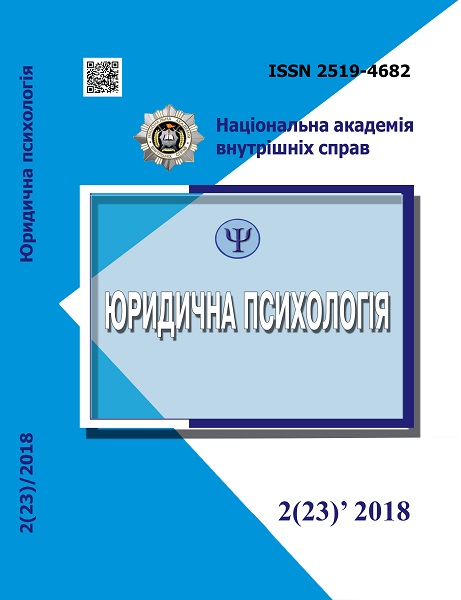Foreign Experience of Effective Communication in Police Activities
Abstract
The purpose of the article is to study the foreign experience of effective models of professional communication of policemen and ways of introducing better experience in practical activities of the staff of the National Police of Ukraine. The experience of effective communication in the work of foreign police officers is analyzed on the example of Germany, Great Britain, Japan, the USA, Latvia and Russia. It has been established that experience of working with police personnel in a number of civilized countries convincingly confirms the existence of effective normative and psychological mechanisms for working out effective communication skills, which can be fully tested in the National Police of Ukraine. The main tasks of the district police of Germany are highlighted, in particular: establishment and support of contacts with citizens, public groups, institutions and organizations of a certain district, independent of the circumstances; conducting of preventive counseling at the place of residence; assistance to crime victims and some other tasks. The peculiarities of realization in the USA of the program of public activity of the police patrol service, created to ensure active cooperation of the police with the population, are determined. The results of the pilot project "Public Police Work" at the Talsi Police Station of Latvia during 2009-2012 and recommendations for its improvement are shown, namely: to urge the police to perceive the population as clients; to limit the concentration on conflicts in the training program for police officers; to train police officers to communicate in situations where there is no conflict, to establish informal and non-authoritarian contact with the population, etc. The possibilities of using foreign effective models in the work of the police of Ukraine with the public are determined.
Downloads
Abstract views: 332 PDF Downloads: 1297
- Authors reserve the right to authorship of their own work and transfer to the magazine the right of the first publication of this work under the terms of the Creative Commons Attribution License, which allows other persons to freely distribute published work with mandatory reference to authors of the original work and the first publication of an article in this magazine.
- Authors have the right to enter into separate additional agreements on non-exclusive dissemination of the work in the form in which it was published in the journal (for example, to post an article in the institution's repository or to publish as part of a monograph), provided that the link to the first publication of the work in this journal is maintained.
- The journal's policy allows and encourages the posting of articles by authors on the Internet (for example, in electronic storehouses of institutions or on personal websites), both before the submission of this manuscript to the editorial office and during its editorial processing, as this contributes to the creation of a productive scientific discussion and positively affects the efficiency and dynamics of citing the published work.




